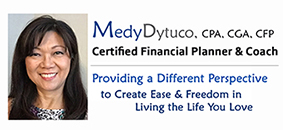Retirement – Are you Prepared?
Whether you are decades away from retirement or if it is just around the corner, being aware of the planning opportunities will take the fear and uncertainty out of this major life event.
Blue sky your retirement plans to get clarity
As you approach retirement, preparation and planning become extremely important to help ensure that this period of your life will be as comfortable as possible. If you are like most, you have spent considerable time contemplating the type of retirement you wish for yourself.
- Is extensive travel your dream?
- Do you have an expensive hobby or two you want to take up?
- Will you stop working totally or continue to do some work on your own terms using your life experience and skills to supplement your income.
- Will you remain in your house or will you downsize to smaller, easier to care for premises? Or perhaps housing that will be more compatible with the challenges of aging?
There are many lifestyle issues that need to be considered but to realize these dreams you must also be really secure in retirement, so the financial issues must be planned for as well.
The big question – How much will I need to retire?
Recent studies reported that middle and upper middle class couples spend approximately $50,000 to $60,000 per year in retirement. If this seems a lot lower than what you and your spouse are spending now, it probably is. That is because most retirees no longer have the same level of expenses around housing, education and raising a family.
The average age for retirement in Canada for males is age 62 (females, age 61). At that age, normal life expectancy is another 22 years. Many financial advisors use a rule of thumb that says you will need a nest egg of approximately 25 times your post-retirement spending.
The average CPP retirement pension is approximately $7,600 per year or approximately $15,000 per married couple (if spouse qualifies for income at same rate). Assuming a 4% withdrawal rate and adjusted for inflation this means that a middle class couple would require a retirement fund of $875,000 to $1,125,000. If you do not qualify for or wish to ignore your government benefits you would require between $1,250,000 and $1,500,000. For those lucky enough to have participated in a company pension plan, you may already have sufficient retirement income.
8 Retirement planning tips
Review your sources of retirement income
- Registered plans –including RRSP’s, corporate pension plans, TFSA’s
- Government programs – CPP, QPP, OAS etc.
- Non-registered investments – stocks, bonds, mutual and segregated funds, cash value life insurance, prescribed life annuities
- Income producing real estate – including proceeds from the sale of principal residence if downsizing.
Eliminate or consolidate debt
- Try to avoid carrying debt into retirement. If interest rates rise and your retirement income is limited or fixed your lifestyle could be negatively affected.
Understand your government benefits
- Review what government programs you are eligible for.
Know your company pension plan
- If you are a member of a company pension plan review your pension handbook or meet with the pension administrator to understand what options are available for you. This should include reviewing the spousal survivor options.
Reduce or eliminate investment risk
- Consider reallocating your investment portfolio in contemplation of retirement to eliminate or reduce risk. You may want to shift away from primarily equities in an effort to provide more stable returns.
Protect your savings and income
- Also consider effective risk management to avoid depleting assets in the case of a health emergency affecting yourself or a family member. There are many insurance options available to help you do this including Critical Illness, Long Term Care and Life Insurance.
Know your health benefits
- Determine how you will maintain your dental care, prescription, and other extended health costs through retirement.
Review your estate planning strategy
- Are you still on track or do modifications have to be made to wills, trusts, tax planning, Shareholder and other agreements?
Tax planning in retirement
Tax planning most likely was part of your investment strategy during your working years and you shouldn’t abandon that now just because you are retired. Tax planning is just as important as it was pre-retirement.
Pay attention to the following:
Mark your calendar for your 71st birthday
- By the end of the year you turn age 71, you must convert your RRSP’s into RRIF’s or annuities. There will be adverse consequences if you do not so be sure to take note.
Defer your taxable retirement income until age 71
- Since your income from your RRIF or registered life annuity is fully taxable try to bridge your income from date of retirement to age 71 using non-registered funds. Your TFSA is a perfect vehicle to accomplish this so try to contribute the maximum (or exercise the catch up) for you and your spouse during your working years. Also, taking income from your segregated or mutual funds will also be an effective way of bridging your retirement income until age 71 at a very low tax rate.
RRSP contributions in year you turn 71
- If you have unused RRSP contribution room you can make a lump sum contribution until December 31st of the year you turn 71. Your resulting RRSP deduction can be carried forward indefinitely and will allow you to spread out the deduction over any number of years reducing the tax on your future retirement income.
Try to avoid any claw backs
- Your objective should be to effectively reduce line 234 on your income tax return – total income. Paying attention to how your investment income is taxed will assist with this. For example, the type of investment income that creates the most total income on line 234 is dividend income which is adjusted for income purposes to between 125% and 138% of the dividend received. This compares with 50% for capital gains and approximately 15% or less for prescribed annuities.
Continue to obtain professional advice
- Continue to work with your advisors to find ways for you to reduce your post retirement tax bill to allow you to keep more dollars in your wallet.
Planning for a healthy retirement both financially and physically will ensure that you can enjoy a long and well deserved retirement on your terms.



